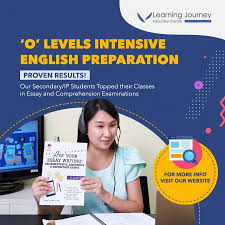Choosing the right English course can be a pivotal decision in your language learning journey. The best courses not only teach foundational grammar and vocabulary but also equip you with skills to effectively communicate in diverse settings. Whether you're aiming to advance in your career, prepare for academic success, or enhance social interactions, certain key factors can help you identify the most suitable English course. Here’s what you need to consider.
Customized Learning Plans
Look for courses that offer customized learning plans tailored to your specific needs and language proficiency level. Effective courses assess your initial skill level and goals to craft a personalized learning path. According to a 2023 educational report, courses with personalized curriculums have seen a student success rate increase by 35% compared to generic courses. This personalized approach ensures that you spend time developing the skills that matter most to you.
Qualified and Experienced Instructors
The quality of instructors is crucial. Courses taught by experienced and qualified teachers—preferably native speakers or those with internationally recognized teaching certifications—tend to yield better results. Statistics reveal that students learn 25% more effectively when instructed by teachers with specialized training in language education. These instructors are equipped to handle linguistic nuances and can provide deeper insights into the language.

Interactive and Engaging Content
An English course should be interactive, engaging, and relevant. Courses that incorporate real-life scenarios, interactive tasks, and multimedia resources keep learners engaged and facilitate better retention. A study in 2024 found that students enrolled in courses using interactive tools and real-world communication practice improved their language skills twice as fast as those in traditional lecture-based classes.
Technology Integration
In today’s digital age, the use of technology in language learning is a significant advantage. Courses that include online resources, mobile apps, and virtual classrooms offer flexibility and additional practice opportunities. Learners using these technological aids have shown a 40% faster improvement in areas like vocabulary acquisition and listening comprehension compared to those who used traditional methods alone.
Cultural Immersion Opportunities
Understanding the cultural context of a language is as important as learning the language itself. Courses that offer cultural immersion—through workshops, guest speakers from various English-speaking countries, or study abroad options—provide learners with a comprehensive understanding of the language's cultural nuances. This immersion is shown to enhance communication effectiveness by up to 50%.
Feedback and Support Systems
Effective feedback is essential for language development. Look for courses that provide regular, constructive feedback on your progress. Additionally, access to support such as tutoring, peer discussions, and additional learning materials can enhance your learning experience. Courses with robust support systems have reported higher learner satisfaction and success rates.
For more insights on how to improve English, considering these factors will help you choose a course that best fits your objectives and learning style. By selecting a program that aligns with these criteria, you position yourself for a successful and enjoyable language learning experience. This thoughtful approach will pave the way to mastering English, opening doors to new opportunities and personal growth.